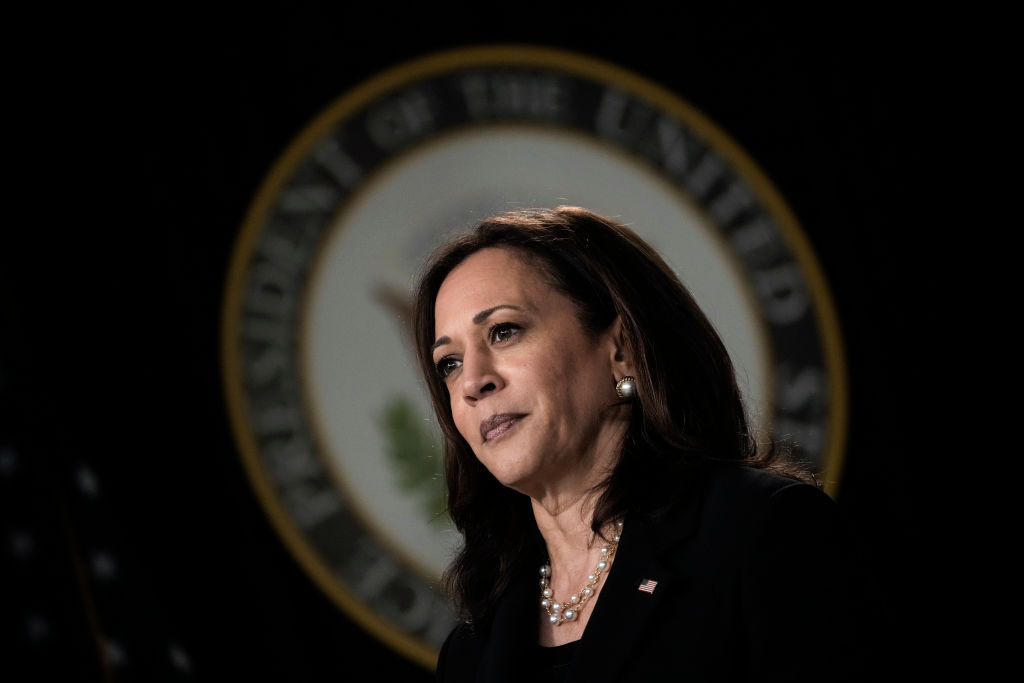A new, 256-page policy outline by the current Biden-Harris administration and Kamala Harris’s 2024 presidential campaign could change the U.S. tax code in an unprecedented way.
A hotly debated inclusion in the proposal is the taxation of unrealized gains for individuals worth more than $100 million. About 10,000 of the wealthiest Americans would be affected.
A paper from the Washington Center for Equitable Growth shows Kamala’s unrealized gain tax proposal would “strengthen the progressivity” of the tax code.
In effect, the policy would close an “infinite money glitch” that allows high net worth individuals to avoid paying taxes on loans secured with assets. The authors point out that some of the wealthiest Americans routinely use this loophole to avoid taxation and acquire more capital to invest into more assets.
For example, an investor may hold stocks that have gained value since they purchased them. Instead of selling the stock and having the profits taxed, the borrows more money using the stocks’ value as collateral. They still own the stock, but can access more money much like home equity lines work.
Ultimately, the investor keeps the assets, the untaxed profit, and has access to more capital, in perpetuity. Moreover, interest rates on loans with collateral posted are often low, if not negligible.
Moreover, because the stocks aren’t sold — only borrowed against — the profits are not taxable. This gives investors ever-growing access to more money, which can be reinvested, and grow their wealth further.
How the “Infinite Money Loop” Fuels Inflation
This cycle fuels inflation. Typically, the asset-secured loan is then used to buy more assets. That capital also creates demand in “investment” markets, which in turn drives up prices. The housing market, for example, has seen a flood of investment capital. According to a Redfin report, 26% of starter home sales were sold to investors in Q4 of 2023. This surge in demand pushes prices up, and locks first-time homeowner’s out.
Economists estimate that the approximately 10,000 Americans worth over $100 million currently hold $8.5 trillion in unrealized capital gains. Moreover, the proposed 25% unrealized capital gains tax could go a long way in funding government programs and tackling national debt.
Under the proposed unrealized gains tax, the investor would pay income tax on the money borrowed against assets. A possible adverse consequence: A 25% tax may spook investors from borrowing against their assets. Investment capital could be less liquid.
Importantly, the policy proposal only applies to those with a net worth over $100 million. Moreover, additional thresholds and exemptions would apply to lower net worth households that would assist them in building wealth and closing growing wealth inequality.
Corporate Tax Rates
As explained in the detailed proposal: “Raising the corporate income tax rate is an administratively simple way to raise revenue to pay for the administration’s fiscal priorities.”
A related proposal is to increase the tax rate for corporations by 7% to 28%. Notably, even with this proposed increase, corporations would be returning to the 35% rate they were subject to prior to the passing of the 2017 Tax Cuts and Jobs Act, which is expected to sunset in 2025.
The proposal also takes aim at corporate stock repurchases: “Furthermore, stock repurchases are tax-favored relative to dividends as a means of distributing corporate profits to shareholders. Increasing the excise tax rate on stock repurchases would reduce this disparity.”
Currently, corporate stock repurchases are taxed at 1%. Kamala’s economic policies would raise that to 4%.
The revenue raised for these tax increases on investors and high net worth individuals would be redirected to programs that support middle and low-income households, which have been buckling under the pressure of inflation and the rising cost of living.
Related: Second Trump Presidency Would Reignite Inflation, 16 Nobel-Winning Economists Say
Closing the “Infinite Money Glitch”
Perhaps most impactful, Kamala’s proposal would eliminate tax-free, low interest borrowing that is only truly accessibly for high-net worth individuals. Importantly, the proposal also suggests posting retroactively, affecting any relevant transactions that occurred after December 31, 2023.
To date, analysts estimate the retroactive effective date would make $140 billion taxable. If implemented, $56 billion would be owned from the borrowing that has already occurred since December 31, 2023.
These reforms would have a substantial effect on wealth disparity, while propping up programs that otherwise face potential insolvency, such as Social Security.
But whether legislators have the political will to enact them this will be clearer after the November election cycle.


